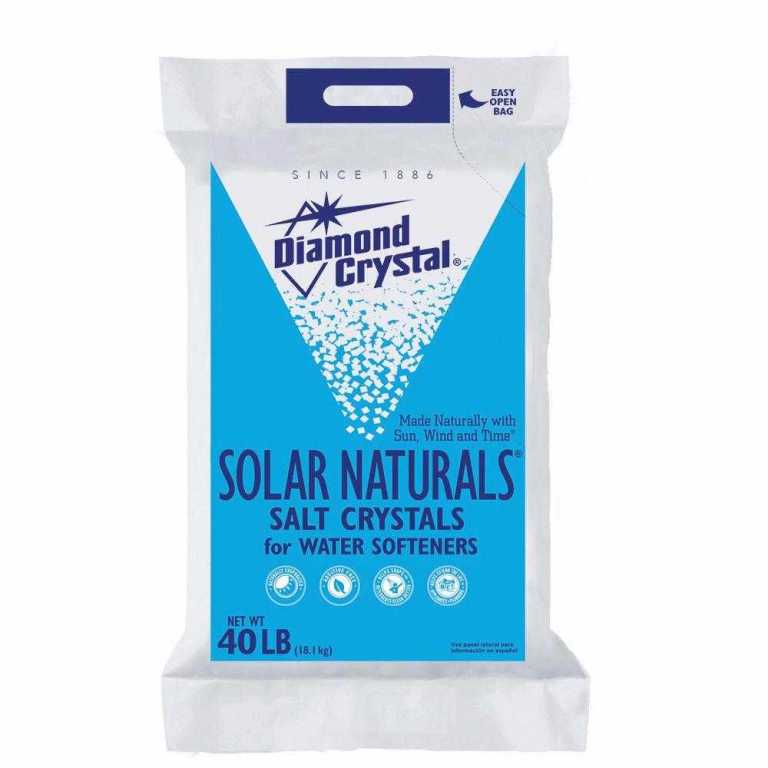Understanding Salt-Free Water Systems

If you are curious about “salt-free” systems, this article explains why a salt-free system may, or may not, be a benefit for you.
There are two types of salt-free systems. Neither system is a “softener”. Both types claim to prevent scale build-up and remove existing scale buildup in plumbing and appliances.
Type 1
The 1st type uses a media in a tank that the water supply flows through. The media starts a reaction of transforming dissolved calcium (Ca) and magnesium (Mg) into nanocrystals. The design theory is that the Ca/Mg will remain in a nano-crystal form for the entire time that water is in the household distribution system, including the hot water tank.
Field experience has proven that there are many variables in water chemistry that must line up, exactly, for this reaction to occur and /or to remain long enough to be effective. Water conditioning dealers report mixed results with some systems working to prevent scale buildup in hot water systems and plumbing and others not working at all.
Type 2
The other type of system utilizes magnetic energy fields to alter the physical properties of the Ca/Mg causing them to repel one another rather than attract. Manufacturers of this type of device also claim that their products prevent scale buildup.
In these systems the Ca/Mg will convert to a soft, material called aragonite talc. We have found one such system to perform as claimed when applied to water with a constant flow rate that matches the system size. The inventor of this system patented the first multi-pole magnet. The company has sold over 400,000 systems, since 1964, for commercial use.
This system has been recognized by ASHRAE (The American Society of Heating, Refrigerating and Air Conditioning Engineers) as a viable option for cooling tower pre-treatment. They have been used successfully in many other commercial and industrial applications. However, they are of no value in a residential application as the flow rate is not constant. The owner of this company is on record stating that his family uses a true water softener in their own home.
Are the systems certified and validated?
Regardless of the system type, we have found NO third-party validation, by NSF/ANSI or any other legitimate laboratory to support their claims. Beware of unscrupulous companies that publish various NSF validations, about their products. Many will publish (or post on their website) NSF 42 and NSF 61. NSF 42 validates the structural integrity of the equipment. NSF 61 validates that the equipment is not adding new and/or additional contaminants to the water supply.
Neither standard is intended to validate whether or not the equipment works as claimed.
Buyer Beware
Companies that advertise these products as “Salt-Free Softeners” are misrepresenting their product. Soft water, by definition, is water that is free of calcium and magnesium, the common scale forming minerals. Salt-free systems do not remove any portion of these minerals.
Perhaps one day, technology will deliver a practical method of enjoying truly soft water, in the home, without the use of salt or potassium. For now, “if it sounds too good to be true – it probably is”.
Homeowners should be careful if employing any device that actually de-scales plumbing. The existing scale buildup has sealed weak spots in your pipes, caused by hard water. If removed, these areas will frequently become leaks and can cause catastrophic damage to your home.
REAL Water Softeners
On the other hand, water softeners eliminate the possibility of scale buildup by completely removing the scale forming minerals. Additionally, water softeners provide numerous other benefits. It is unlikely that anyone who has experienced soft water would be satisfied with a salt-free system even if it were working as claimed.
The many additional benefits of water softeners, such as soft skin, silky hair, sparkling dishes, reduced soap usage, better laundry results, and less cleaning, are non-existent with salt-free systems. Many of these added benefits are green as well. Reducing the use of soaps, fabric softeners, cream rinses, and other cleaning products help to protect the environment, reduce personal exposure to harsh chemicals, and save money.
Salt-based water softeners have recently received high marks by Battelle Memorial Research Laboratories (see article) as, perhaps, one of the greenest appliances in the home. If you have a water softener, this report will support your wise investment. You have been ahead of the times, utilizing green technology in your home, while enjoying the many additional benefits of soft water and enhancing your family’s quality of life. If you are not utilizing a water softener as an energy-saving appliance, give us a call and learn more about the options available to you.
Want to know more about water softening? Contact our team!
Ready to Take Control of Your Water Supply?
Don’t wait for water shortages or unreliable sources to disrupt your life. With our Rainwater Harvesting systems, you can enjoy a sustainable, reliable, and completely self-sufficient water solution tailored to your home’s needs.

